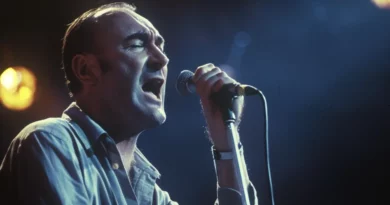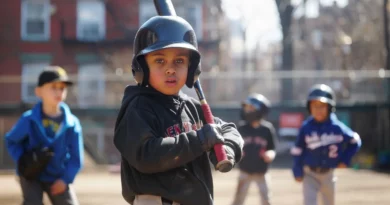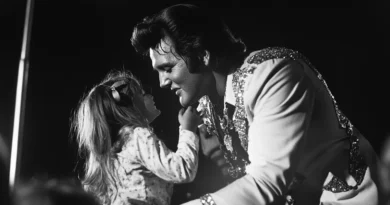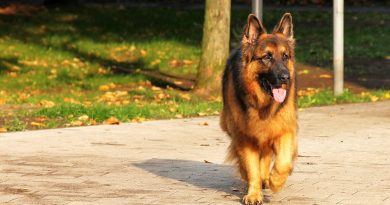Um eremita, vivendo na solidão do deserto, revelou que seu maior desafio era domar os “animais” dentro de si: os falcões de seus olhos que atacam indiscriminadamente, as águias de suas mãos que ferem, os coelhos de seus pés que fogem das dificuldades, a cobra de sua língua que envenena, o burro de seu corpo que se recusa a trabalhar e o leão de seu coração que é vaidoso e orgulhoso. Cada um de nós carrega esses animais internos, e a verdadeira batalha é aprender a controlá-los.
| Audio | |
|---|---|
Normal | Slow |
| English Transcript | Tradução |
| Against whom do we fight? | Contra quem lutamos? |
| A hermit, one of those people who, for the love of God, take refuge in the solitude of the desert, the forest, or the mountains to dedicate themselves solely to prayer and penance, often complained that he had too much to do. | Um ermitão, uma destas pessoas que por amor a Deus se refugiam na solidão do deserto, do bosque ou das montanhas para dedicar-se somente à oração e à penitência, muitas vezes reclamava que tinha muito que fazer. |
| They asked him how it was possible that, in his solitude, he had so much work. | Perguntaram-lhe como era possível que, em sua solidão, tivesse tanto trabalho. |
| "I have to tame two falcons, train two eagles, keep two rabbits quiet, watch a snake, carry a donkey, and subdue a lion." | "Tenho que domar dois falcões, treinar duas águias, manter quietos dois coelhos, vigiar uma serpente, carregar um asno e sujeitar um leão." |
| "We don't see any animals near the place where you live. Where are these animals?" | "Não vemos nenhum animal perto do local onde vives. Onde estão estes animais?" |
| The hermit then explained: | O ermitão então explicou: |
| "All men have these animals, you too… The two falcons pounce on everything that appears, whether good or bad. I have to tame them so that they only focus on good prey. They are my eyes." | "Estes animais todos os homens os têm, vocês também… Os dois falcões se lançam sobre tudo o que aparece, seja bom ou mau. Tenho que domá-los para que só se fixem sobre uma boa presa. São meus olhos." |
| "The two eagles wound and tear apart with their claws. I have to train them to be useful and help without hurting. They are my hands." | "As duas águias ferem e destroçam com suas garras. Tenho que treiná-las para que sejam úteis e ajudem sem ferir. São minhas mãos." |
| "The two rabbits want to go where they please, fleeing from others and dodging difficulties. I have to teach them to stay still even if it is painful, problematic, or unpleasant. They are my feet." | "Os dois coelhos querem ir onde lhes agrada, fugindo dos demais e esquivando-se das dificuldades. Tenho que ensinar-lhes a ficarem quietos mesmo que seja penoso, problemático ou desagradável. São meus pés." |
| "The most difficult is to watch the snake, despite it being locked in a cage with 32 bars. It is always ready to bite and poison those around it, as soon as the cage is opened. If I don't watch it closely, it causes damage. It is my tongue." | "O mais difícil é vigiar a serpente, apesar dela estar presa numa jaula de 32 barras. Está sempre pronta para morder e envenenar os que a rodeiam, mal se abre a jaula. Se não a vigio de perto, causa danos. É minha língua." |
| "The donkey is very stubborn, it doesn't want to fulfill its obligations. It claims to be tired and refuses to carry the load of each day. It is my body." | "O burro é muito obstinado, não quer cumprir com suas obrigações. Alega estar cansado e se recusa a transportar a carga de cada dia. É meu corpo." |
| "Finally, I need to tame the lion. It wants to be the king, the most important; it is vain and proud. It is my heart. Therefore, there is much to do…" | "Finalmente, preciso domar o leão. Quer ser o rei, o mais importante; é vaidoso e orgulhoso. É meu coração. Portanto, há muito que fazer…" |
Contagem de palavras
A tabela abaixo exibe as palavras encontradas neste texto, bem como o número de vezes em que aparecem.
Veja também: Para que serve esta tabela?
| Freq. | Palavra | Freq. | Palavra | Freq. | Palavra |
|---|---|---|---|---|---|
| 18 | to | 18 | the | 14 | it |
| 10 | is | 8 | and | 6 | two |
| 6 | they | 6 | my | 6 | I |
| 5 | have | 5 | do | 5 | a |
| 4 | that | 4 | of | 4 | are |
| 3 | where | 3 | watch | 3 | them |
| 3 | tame | 3 | or | 3 | not |
| 3 | much | 3 | in | 3 | be |
| 3 | animals | 2 | you | 2 | with |
| 2 | we | 2 | want | 2 | train |
| 2 | too | 2 | those | 2 | these |
| 2 | solitude | 2 | so | 2 | snake |
| 2 | rabbits | 2 | on | 2 | most |
| 2 | lion | 2 | if | 2 | hermit |
| 2 | he | 2 | had | 2 | good |
| 2 | falcons | 2 | eagles | 2 | donkey |
| 2 | carry | 2 | cage | 2 | as |
| 1 | wound | 1 | work | 1 | without |
| 1 | whom | 1 | who | 1 | whether |
| 1 | was | 1 | wants | 1 | very |
| 1 | vain | 1 | useful | 1 | unpleasant |
| 1 | tongue | 1 | tired | 1 | therefore |
| 1 | there | 1 | then | 1 | themselves |
| 1 | their | 1 | tear | 1 | teach |
| 1 | take | 1 | subdue | 1 | stubborn |
| 1 | still | 1 | stay | 1 | soon |
| 1 | solely | 1 | see | 1 | refuses |
| 1 | refuge | 1 | ready | 1 | quiet |
| 1 | proud | 1 | problematic | 1 | prey |
| 1 | prayer | 1 | pounce | 1 | possible |
| 1 | poison | 1 | please | 1 | place |
| 1 | people | 1 | penance | 1 | painful |
| 1 | others | 1 | opened | 1 | only |
| 1 | one | 1 | often | 1 | obligations |
| 1 | need | 1 | near | 1 | mountains |
| 1 | men | 1 | love | 1 | locked |
| 1 | load | 1 | live | 1 | king |
| 1 | keep | 1 | its | 1 | important |
| 1 | hurting | 1 | how | 1 | his |
| 1 | him | 1 | help | 1 | heart |
| 1 | hands | 1 | god | 1 | go |
| 1 | fulfill | 1 | from | 1 | forest |
| 1 | for | 1 | focus | 1 | fleeing |
| 1 | finally | 1 | fight | 1 | feet |
| 1 | eyes | 1 | explained | 1 | everything |
| 1 | even | 1 | each | 1 | does |
| 1 | dodging | 1 | difficulties | 1 | difficult |
| 1 | despite | 1 | desert | 1 | dedicate |
| 1 | day | 1 | damage | 1 | complained |
| 1 | closely | 1 | claws | 1 | claims |
| 1 | causes | 1 | body | 1 | bite |
| 1 | being | 1 | bars | 1 | bad |
| 1 | asked | 1 | around | 1 | appears |
| 1 | apart | 1 | any | 1 | always |
| 1 | all | 1 | against |










Excelente